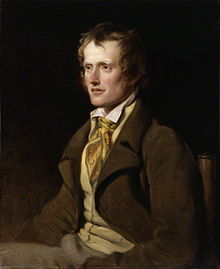 As spring approaches, people are starting to enjoy the out of doors again. They are making plans for camping trips, looking for nature trails, and just enjoying the afternoon in a park or some rural setting. People are beginning to work in their flower beds and vegetable gardens. It’s enjoyable to watch the leaves begin to come out on the trees and to see the birds returning from their winter migration. The sounds of nature are everywhere. We open our houses to enjoy the warmth and the scents of nature which is all around us.
As spring approaches, people are starting to enjoy the out of doors again. They are making plans for camping trips, looking for nature trails, and just enjoying the afternoon in a park or some rural setting. People are beginning to work in their flower beds and vegetable gardens. It’s enjoyable to watch the leaves begin to come out on the trees and to see the birds returning from their winter migration. The sounds of nature are everywhere. We open our houses to enjoy the warmth and the scents of nature which is all around us.
Just think of all of cultures over the centuries which have had a very close tie to the world around them. This is especially true of the agrarian and nomadic peoples. But even city dwellers have made it a point to get out of the confines of their urban environment and find some secluded location in which to relax and enjoy the peace and quiet that natural settings offer. Modern day cities have spent significant efforts in maintaining ‘green’ zones and protected natural areas — New York City’s Central Park certainly is one of the greatest examples. Nature is certainly one of those topics which poets have focused on since the written word was first created. Poets the world over have written from short quatrains to extensive and complicated epic-style works.
The theme of nature in poetry has been a long-standing tradition throughout North America and much of Europe. This has been even more evident in poetry from Asia. It was very common for poets from China to diminish, or dehumanize, the mankind in relationship to the natural world that surrounds them. The writers from Japan have utilized the haiku-style of poem to focus on the non-human aspects of life for hundreds and hundreds of years. While this focus on nature was common place throughout Asia, the concept of placing great value on nature in the poetry composed in Europe did not occur until the Romantic period.
Untitled
by Basho Matsuo

The poets from the Romantic period wrote many pieces about poetry, but they were certainly not the only writers who were producing significant poems regarding nature. For example, the writings of poet John Clare, from the late-Augustan period, were intermixed with the knowledge that comes from living a peasant’s life all the way to creating what some may consider the most splendid poetry of nature found in all of English literature.
All nature has a feeling
by John Clare

Without doubt, poems about nature are some of the most common found in every culture and time period of history. Even the typical school child’s very first effort in composing a poem often has some aspect of nature as its theme. Nature poems have found their way into the world’s classrooms as wonderful teaching tools, with opportunities for learning such elementary topics as numbers, colors, and the names of creatures, plants, the sky, and the earth itself. Often places along with simple musical scores, these simple poems are the source for many of the nursery rhymes that many of us learned as young children.
I Had a Little Nut Tree
by Anonymous



You must register to comment. Log in or Register.